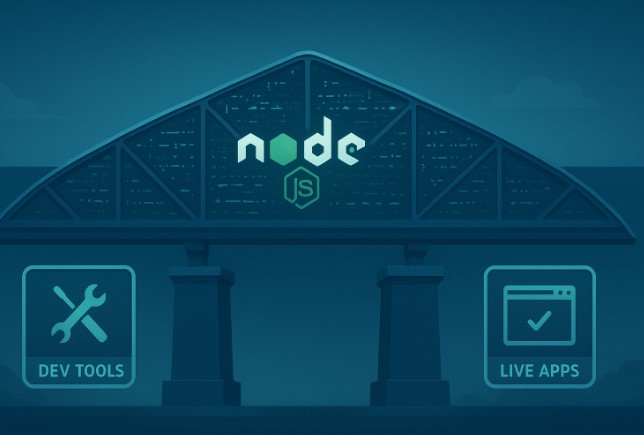Why Developers Prefer Node.js VPS Hosting for Reliable Applications
In today’s competitive digital landscape, application reliability isn’t just a feature—it’s a fundamental requirement. Users expect applications to be available 24/7, respond quickly under varying loads, and maintain data integrity through updates and scaling events. For developers, choosing the right technology stack and hosting environment directly impacts their ability to meet these reliability expectations. While many options exist, an increasing number of developers are standardizing on specific combinations that provide the right balance of performance, control, and maintainability. Understanding why certain approaches have gained developer preference reveals important insights about what truly matters for building applications that users can depend on day after day.
The Developer’s Reliability Challenge
Building reliable applications involves more than just writing bug-free code. Developers must consider how applications behave under real-world conditions: sudden traffic spikes, hardware failures, security threats, and the inevitable need for updates and scaling. The hosting environment plays a crucial role in all these scenarios. Shared hosting often fails under pressure, while platform-as-a-service solutions can introduce unexpected constraints and costs. Even unmanaged infrastructure can become a reliability liability if it requires constant attention or lacks the right monitoring tools. Developers need environments that support their reliability efforts rather than creating additional obstacles. This need for supportive infrastructure has shaped developer preferences toward solutions that provide both technical capability and operational simplicity.
Node.js: Engineered for Modern Reliability
Node.js has earned developer trust for building reliable applications through several deliberate design choices. Its non-blocking, event-driven architecture naturally handles concurrent operations efficiently, preventing the thread exhaustion that can crash applications under load. The single-threaded event loop with worker threads provides a predictable execution model that’s easier to reason about and monitor. Node.js applications tend to have smaller memory footprints compared to some alternatives, reducing the resource requirements for reliable operation. The npm ecosystem offers battle-tested modules for common reliability concerns like circuit breakers, retry logic, and graceful shutdowns. Perhaps most importantly, Node.js has mature tooling for monitoring and debugging production applications, giving developers visibility into reliability metrics that matter.
Why VPS Hosting Complements Node.js Reliability
Nodejs VPS hosting provides the foundation that Node.js applications need to achieve their reliability potential. Unlike shared environments where “noisy neighbors” can destabilize applications, a VPS guarantees dedicated resources that ensure consistent performance. The control over the operating system allows developers to fine-tune the environment specifically for Node.js workloads—optimizing memory settings, configuring the right version of Node.js, and implementing process management that automatically restarts failed applications. This level of control is essential for implementing comprehensive reliability patterns like health checks, rolling deployments, and proper logging. The isolation of a VPS also enhances security reliability by eliminating the risk of other users’ vulnerabilities affecting your application.
Key Reliability Features Developers Value
Predictable Performance Under Load
Developers appreciate that Node.js applications on a VPS maintain consistent response times even as user numbers fluctuate. The event-driven architecture efficiently handles many concurrent connections, while the dedicated VPS resources prevent resource contention during traffic spikes. This predictability allows developers to set and meet specific performance Service Level Objectives (SLOs) rather than making vague promises about application responsiveness.
Graceful Error Handling and Recovery
Node.js provides robust mechanisms for handling errors without bringing down entire applications. Combined with process managers like PM2 on a VPS, developers can implement sophisticated recovery strategies that automatically restart crashed processes, manage memory usage, and maintain application availability even when unexpected errors occur. This capability is particularly valuable for applications that cannot tolerate extended downtime.
Simplified Scaling Strategies
Reliability often depends on the ability to scale resources when needed. The combination of Node.js’s horizontal scaling capabilities and VPS resource flexibility creates a straightforward path for capacity expansion. Developers can scale Node.js applications by adding more instances behind a load balancer, while the VPS can vertically scale by adding CPU or memory—all without application changes. This scaling flexibility ensures reliability during growth periods or unexpected popularity surges.
Comprehensive Monitoring and Alerting
Node.js applications expose detailed metrics about their operation, from event loop latency to memory usage patterns. On a VPS, developers can implement monitoring that tracks both application metrics and infrastructure health. This comprehensive visibility enables proactive reliability management, identifying potential issues before they impact users. The ability to set up customized alerts means developers can respond quickly to reliability threats.
Development Workflow Advantages
Consistent Environments from Development to Production
The isolation and control provided by a VPS enable developers to create production-like environments for testing. This consistency reduces environment-specific bugs that can undermine reliability. Docker containerization, easily managed on a VPS, further enhances this consistency while simplifying deployment processes.
Efficient Debugging and Performance Tuning
When reliability issues occur, Node.js’s debugging capabilities and the VPS’s system access enable efficient root cause analysis. Developers can use Node.js profiling tools to identify performance bottlenecks and then optimize the VPS configuration to address them. This tight feedback loop between application and infrastructure tuning is crucial for maintaining high reliability standards.
Automated Deployment and Rollback
Reliable applications require reliable deployment processes. The control afforded by a VPS enables implementation of automated deployment pipelines with instant rollback capabilities. Developers can deploy updates with confidence, knowing they can quickly revert if issues emerge. This deployment reliability encourages more frequent updates, which paradoxically often improves overall application reliability through faster bug fixes and security patches.
Cost-Effective Reliability
Optimized Resource Utilization
Node.js’s efficient resource usage combined with VPS resource guarantees means developers can achieve high reliability without over-provisioning. The ability to closely match resource allocation to actual needs reduces costs while maintaining performance standards. This efficiency is particularly valuable for startups and growing businesses that need to maximize their infrastructure investments.
Predictable Operating Costs
Unlike cloud platforms where costs can vary unexpectedly based on usage patterns, VPS hosting typically offers predictable pricing. This cost predictability supports better planning and ensures that reliability measures remain sustainable long-term. When developers choose to buy VPS hosting for their Node.js applications, they’re investing in both immediate reliability and long-term operational stability.
Industry Adoption Patterns
The preference for Node.js VPS hosting is particularly strong among developers building:
- Real-time applications like chat systems and collaboration tools
- API servers that need to handle many concurrent connections
- Microservices architectures where predictable performance is crucial
- Startups and scaling businesses that need cost-effective reliability
In all these cases, the combination delivers the specific reliability characteristics that developers need most: consistent performance, efficient resource usage, and operational control.
Conclusion: Building Trust Through Technical Excellence
Developer preference for Node.js VPS hosting ultimately stems from its demonstrated ability to support applications that users can depend on. The technical capabilities of Node.js combined with the environmental control of a VPS create a foundation where reliability becomes achievable rather than aspirational. For developers tasked with building applications that cannot fail, this combination provides the tools, visibility, and control needed to meet even the most demanding reliability requirements. In a world where application performance directly impacts business outcomes and user satisfaction, choosing infrastructure that supports reliability goals isn’t just a technical decision—it’s a core responsibility of every developer committed to building software that truly serves its users.

